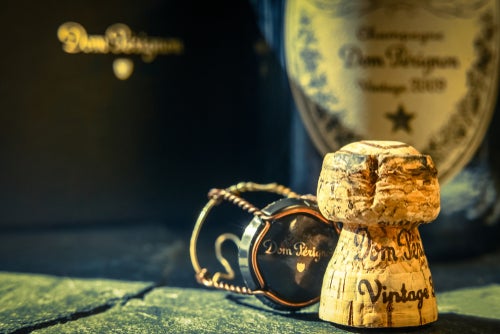
A voracious reader, I’ve never been much of a bibliophile. As I’m also a chucker rather than a hoarder, books unlikely to be read or consulted again have been jettisoned, with many outdated wine books among them. Among those serenely unchallenged is my set, assembled over many years from second-hand bookshops, of the 16 volumes of The Compleat Imbiber.
The Imbiber was an anthology of fact and fiction, memoirs, verse, etc.—both humorous and easy-going serious. Its main run was from 1956 to 1971, with stuttering attempts at revival from 1986. (The full Imbiber story was told by Kathleen Burk in WFW 39, 2013). Wine was inevitably a focus, though other imbibibles got their turn, and food—dining, rather—always featured. There’s much of continuing interest and entertainment still to be revisited. I did some browsing recently and for some reason was particularly struck by what a different wine world from today’s lurks in these pages.
The gulf is partly a matter of tone and atmosphere. The Imbiber’s world is quintessentially English, upper-middle-class and mostly male: clubby and gentlemanly, with, inevitably, genial tales of drinking at Oxford and Cambridge, especially as they were in the authors’ youth. Many contributors were deeply experienced in the limited range of wines they mentioned, but I suspect that thoroughgoing expertise would have raised a well-bred eyebrow. One feels it might be a touch vulgar to know much about the technical intricacies of one’s subject. Vignerons, as distinct from château owners, are seldom invoked, for example; and I retain an impression that in all the words on claret, the names of grape varieties are not there, let alone percentages of new wood or of alcohol.
The copy of the very first issue of The Compleat Imbiber that I was lucky to find has a handwritten inscription from the editor, Cyril Ray, which is eloquent of much of this character. It is a dedication to his wife, Liz, “student of wines and amateur of Rhenish.” I wonder when last “Rhenish” was unpretentiously used to signify the wines of the Rhine, or “amateur” offered in this kindly and respectful sense. In that spirit, my remarks about the Imbiber’s tone are not intended as denigration—I confess, in fact, sympathy for much of this approach, if not its immediate class origins.
There’s even a slight piquancy added to the pervasive gentlemanliness in realizing that a number of the contributors (and the editor) were what we could derisively—or admiringly, I suppose—call Champagne socialists, claret communists, or even Sherry Stalinists, professing left-wing politics while enjoying eminently privileged life-styles. None more famously so than a persistent Communist Party member, Edmund Penning-Rowsell, who contributed to many of the Imbibers a substantial chapter on “Wines to buy and wines to drink,”one that I find strangely addictive.
A different wine world
More noticeably than elsewhere in the anthologies, his section reveals just how different this wine lovers’ world was from ours (even at a similarly privileged level of drinking), beyond the tone I’ve mentioned. It’s often less a question of what is talked about than of the silences—little wine is discussed outside those of Burgundy, Bordeaux, Germany, Champagne, or Port. On reflection, though, one realizes this is true of the whole collection. Yugoslavia gets half-hearted punts, oddly, but that’s perhaps an ideological move.
The classic regions are Penning-Rowsell’s concern, and his writing brings old vintages to life. Even in his last contributions, after returning with The New Compleat Imbiber of 1986, he continues his focus on wines to lay down, though allowing some Rhône reds and perhaps a few wines from Alsace and Piedmont. Others are put in their place: “Here we need not concern ourselves with any but superior wines,” he says, “for there is no lack of excellent, reasonably-priced wines, available for immediate drinking: Beaujolais, white wines from the Loire, medium-quality Rhônes, middle-range Germans and easy-drinking Italians. And nowadays we can go further abroad to Australia, New Zealand, and, if rather more expensively, to the USA.” Yugoslavia seems forgotten.
Penning-Rowsell also notes that America’s ”immense buying power” has lifted the prices of fine wine, and that wine investment and speculation—always present in the trade, he says, and relevant for individuals since the 1960s—also drive up prices. He adds that the trade was no longer able to hold stock. (In 1963, most Bordeaux was “between 1952 and 1958.”)
In his previous survey, in 1970, Penning-Rowsell had already described “disproportionate” growing demand for fine wine. “Already the top French growths,” he lamented, “are now out of the range not only of most wine amateurs, but of most British wine merchants.” What would he have thought a half-century later, one wonders, where they are mostly luxury commodities for the international ultra-rich, while even aspirant professionals—makers and critics of fine wine, for example—have little chance to taste the stuff, let alone to drink it, let alone drink it in maturity?
Let me end nostalgically about the 16 volumes of The Compleat Imbiber, noting that, in so many enthusiastic, affectionate, marveling (and occasionally excoriating) remarks on wines, not one of them is subjected to a score.






